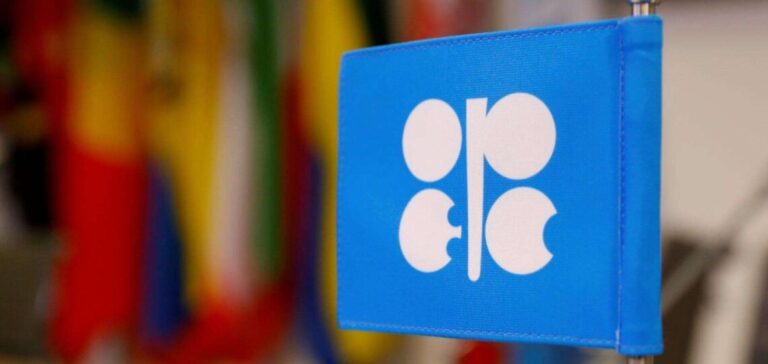New production quota cut or status quo? Representatives of the thirteen members of the Organization of the Petroleum Exporting Countries (Opec), led by Riyadh, and their ten allies led by Moscow, partners in the Opec+ agreement, are meeting by video conference to decide on their next production target.
They finally opted for a virtual meeting format, one day before the start of the European Union’s embargo on Russian crude imports, which is to be accompanied by a price cap.
The alliance is expected to vote for a “renewal of the previous decision” on a 2 million barrel per day cut, an Iranian source told AFP, as the market is “very uncertain” with the imminent arrival of a new package of sanctions against Russia.
China worries
This is also the prognosis of most analysts. “It’s a safe bet that the group will reaffirm its commitment to its latest production cuts,” argues PVM Energy’s Stephen Brennock, although he doesn’t rule out OPEC+ going further to support oil prices.
For since the October meeting, which was held at the cartel’s headquarters in Vienna, prices have fallen back heavily to their level of early 2022, far from the peaks reached after the beginning of the Russian invasion of Ukraine.
The two global black gold benchmarks are now trading between $80 and $85 a barrel, down from over $130 in March.
China, the world’s largest importer of crude oil, is the focus of concern, with the current outbreak raising fears of widespread containment weighing on the economy.
However, Beijing gave markets hope this week by signaling a possible easing of the strict “zero Covid” policy after a wave of angry protests against health restrictions.
Added to this situation are fears of a recession, against a backdrop of soaring inflation in Europe and the US.
Russian influence
Beyond the economic gloom, the great unknown in the oil equation revolves around Russian crude oil, which is in the sights of Westerners anxious to reduce the financial resources that allow Moscow to finance the war in Ukraine.
The EU has decided to ban the EU-27 from buying Russian oil by sea from December 5, “which threatens more than 2 million barrels per day,” according to estimates by ANZ analysts.
Investors are also watching the price cap talks, which are supposed to make the embargo more effective.
European countries are close to finalizing an agreement at $ 60, according to diplomatic sources, knowing that the Ural, the reference variety for Russian crude, is currently trading around $ 67 per barrel.
Beyond this ceiling, tankers transporting Russian crude to third countries will no longer be able to be financed or insured by European operators within six months, in order to prevent Moscow from redirecting its exports.
In addition to the EU, all G7 countries, including the United States and Australia, want to impose such a mechanism.
Russian President Vladimir Putin has warned of “serious consequences for the global energy market”.
The Kremlin “has several options to circumvent” this measure, stresses Edoardo Campanella, an analyst at UniCredit. And he can count on the support of Saudi Arabia, which has never failed him since the beginning of the conflict, to the great displeasure of the United States.
“Moscow could retaliate by using its influence within Opec+ to push the alliance to take a more aggressive stance,” in a warning to the West, which is bristling at the cartel’s price regulation.
Such a scenario “would worsen the global energy crisis,” the analyst warns.





















